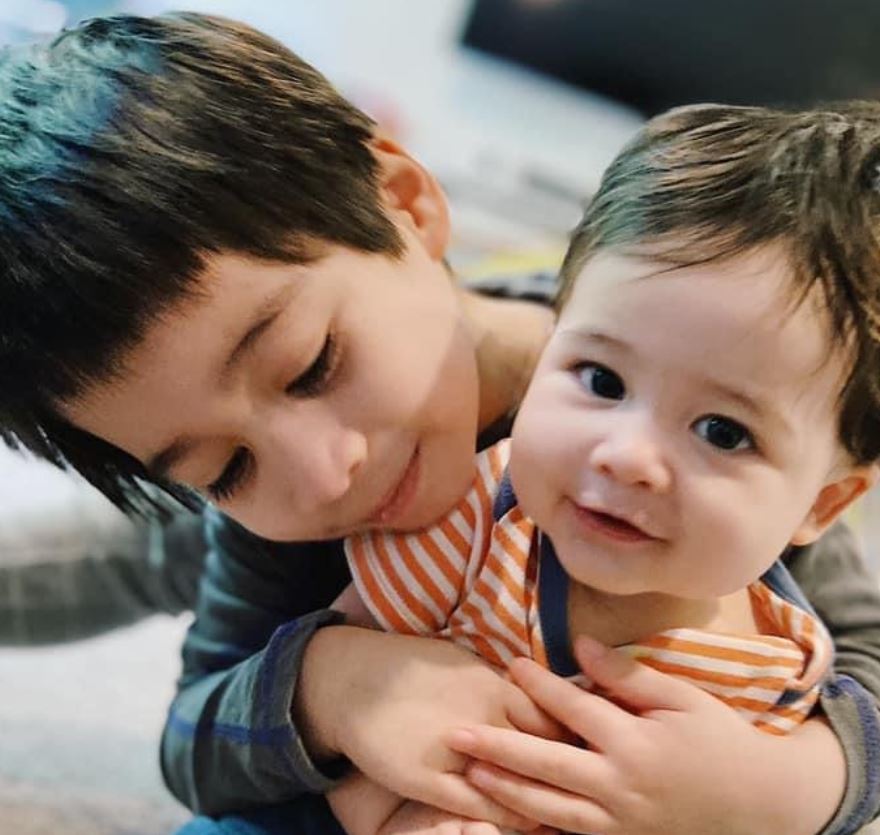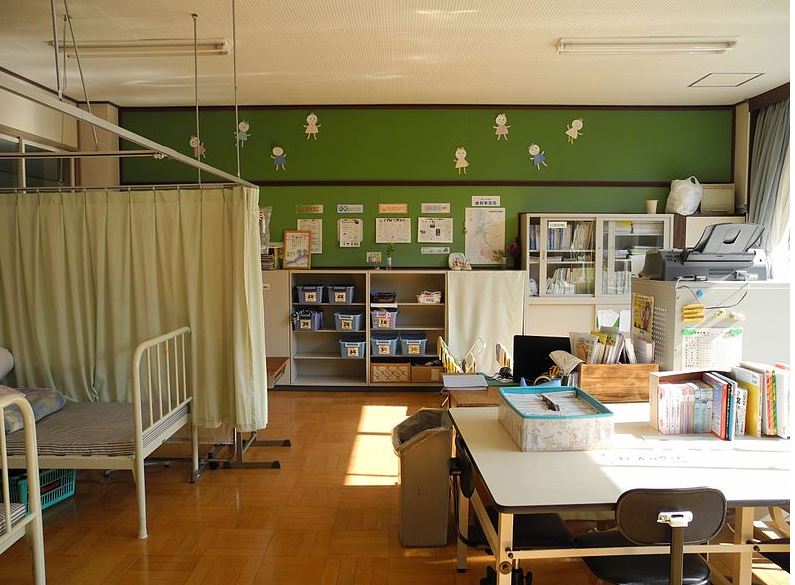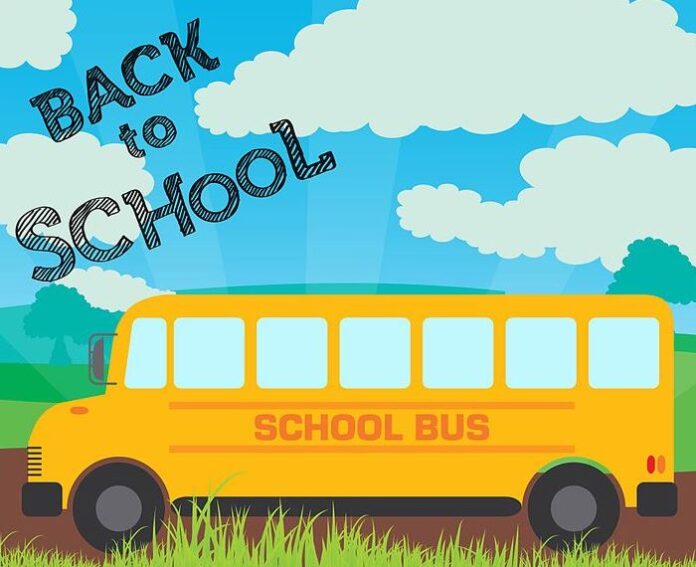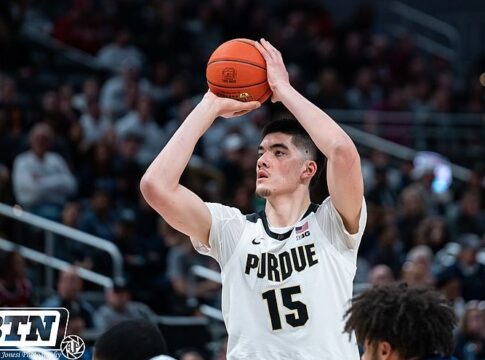By Briana Lim, AsAmNews Intern with additional reporting from Barbara Yau, Alan Oda and Dave Liu
At the forefront of every parent’s mind is the concern for their children’s safety. This year, in addition to navigating the school carpool lane, AAPI parents must navigate parenting amid a global pandemic.
AsAmNews spoke to Asian American parents around the country about their thoughts on the return to school buildings.
The Principal from New Jersey
A Korean American principal from New Jersey wished to remain anonymous for this interview.
Her older son works now, and her younger son is about to enter 11th grade. “I’m glad he is going back to school in person, but because of the delta variant, I’m a little nervous. Especially because in our community, there’s a lot of people who don’t believe in the vaccine.”
LATEST STORIES
She has some concerns that her son’s Pfizer vaccine is less effective against the Delta variant than other vaccines. Moreover, her elementary school students are ineligible for any type of vaccine.
Yet she believes the benefits of in person learning outweighs the risks of COVID because enough people are vaccinated. “And I think there’s a lot of information we know about COVID now, that we didn’t know in the spring. So we know how to protect ourselves a little more. We know we have to worry less about surfaces and more about the aerosols, so there are things we can do.”
New Jersey has mandated masks in schools and social distancing to the “greatest extent possible.”
The Principal was ready to get back to the bustle of work. Her school reopened in the spring with success. Students were expected to social distance and keep their masks on all day.
“I think those kids are resilient and they follow the social norm and things that we enforce consistently.
“But because everything has been so politicized, there are a lot of opinions out there and we’re not talking about health safety anymore, we’re talking about health safety and politics. So there are a lot of people who are not listening to or believing science.”
When describing her community she says, “It’s very…what’s the opposite of diverse? It’s very homogeneous.”
The principal’s son is mixed, and has a White dad. She explained how her son doesn’t appear “totally Asian” on first glance, though because her community isn’t very diverse, “he kind of stands out, he can appear exotic.”
Though the issue of his safety doesn’t necessarily keep her up at night, “it’s in the back of my mind. I have to worry about it here, more than where I used to live, which had a huge Asian American population.”
–Briana Lim

Quan Hoang from Falls Church, Virginia
Quan Hoang, a Vietnamese American from Falls Church, Virginia, is worried that he could be making the biggest mistake of his life by letting his first born 7 year old son Koi return to in-person learning.
Despite knowing that COVID infections are low in children, he feels nervous given that Koi is unvaccinated and that the pandemic is very much still going on. Hoang is especially concerned with the Delta variant, which is more infectious. In his son’s school, the kids are not required to wear masks or socially distance during lunch in the cafeteria or during gym class. Although he does not want kids to have to wear masks during physical activity or while they’re eating, Hoang wishes there were more options that could protect the kids better until they are vaccinated. At the same time, Hoang does not want to hold Koi away from social interaction with his peers.
“There is no easy decision here,” admits Hoang.
Although he is very concerned about Koi facing anti-Asian backlash at school, Hoang stated he would feel more worried for his two-year-old son Ren who looks more Asian like him. Koi on the other hand resembles his mother who is Puerto Rican.
Hoang wishes that the state of Virginia had a remote learning option until kids are able to get vaccinated.
“I would 100% absolutely choose remote learning due to the rise in COVID infections, the Delta variant, and because my son is unvaccinated. Why are we risking our children if we don’t have to?” said Hoang.
-Barbara Yau
Brian Lee from California
Brian Lee has a daughter in high school in the San Jose area. “I’m all for kids going back to school. Socialization benefits their mental health,” said Lee.
“Covid or Covid variants do not concern them or myself.” As for anti-Asian backlash, Lee said he has no concerns for his daughter. “They have a close group of friends of varying races, which helps keep the race card out and they stick up for each other.”
-Alan Oda
First Person: Alan Oda
Most teachers simply follow the guidelines offered by the leadership, as a parent that’s generally reassuring. I have two different perspectives, as a professor at Azusa Pacific University east of Los Angeles, while having a son at a local high school. My own school highly recommends vaccinations, there’s an on-campus vaccination clinic, and we’ll be wearing face coverings indoors. The high school attended by my son has similar policies.
Although I’m not aware of significant Asian hate at my son’s school, the pandemic has encouraged colleagues at my school to share a number of hostilities they’ve experienced.
“Much of the anti-Asian sentiment has been covert for many years, the pandemic has allowed such sentiments to become overt. My female colleagues in particular said the pandemic has exposed long-seated negative Asian sentiments, from derogatory comments to being the object of remarks that they call ‘Asian fetishization’ and other comments deemed dehumanizing…we may be dealing with the virus for awhile, I’m concerned we’ll be dealing with anti-Asian attitudes for even longer.
-Alan Oda
Sally and Jong Woo Park from Virginia
Sally and Jong Woo are Korean Americans living in suburban Northern Virginia, a region known for its rich Asian American community and high performing public schools. They have two sons, the older entering his second year at university, and the younger entering his second year at public high school.
When asked about their opinions on the kids’ return to school, they are cautious but ready for the change.
“They should go back to school. I think they’ve been out of school too long,” said Jong Woo.
Though aware of rising COVID, he explains, “I am more worried about their ability to socialize with other people. It’s time to move on, with caution.”
Both kids missed out on their freshman year. “That’s part of the reason that I think they need to go back — because they lost part of their lives, so it’s time to move on so they have an opportunity to catch up on things before it’s too late.”
Sally, on the other hand, is less concerned: “I think [virtual learning] was fine for them,” and, “I don’t worry. I think they’ll find their way.”
Though Sally had concerns over the Delta variant, her older son’s university required vaccinations, and Virginia recently mandate masks for indoor public schools. “That gave me relief.”
Dozens of universities around the nation have successfully implemented COVID vaccinations requirements. Though Virginia has mandated masks for K-12 schools, many states across the country have not, and some look to ban masks in school.
When it comes to the concurrent pandemic of Asian hate, Sally is grateful that she doesn’t have to worry over her sons’ safety. “I don’t worry about it that much since our community is very diverse. I hope Edwin and Elias can speak up if they feel something is not fair and not right because of the race.”
-Briana Lim

‘Ms. Sasi’ from Maryland
Indian American Sasikala Venkataraman, or ‘Ms. Sasi’ as her students call her, teaches at Breakthrough Montessori school in Washington, DC. She lives with her family in Maryland, has a son going into 8th grade, and a daughter entering her third year of college.
Being a teacher herself, Ms. Sasi is all too aware of both the risks and benefits of going back to school.
“We are not comfortable sending him, even though he got the vaccine, but, at the same time, the quality of teaching online is not that great,” she explains the dilemma.
Her students range from 3 to 6-year-olds, all of whom are ineligible for the vaccine, yet are less able than older students to unlock benefits of virtual learning.
Breakthrough Montessori made the abrupt shift to all-online learning in March 2020, and remained online until April 2021. Teachers like Ms. Sasi had to scramble to develop lesson plans using technology they never needed before.
Unlike many other schools that have been steadily increasing technology in the classroom, Montessori teaching philosophy directly clashes with the limitations of virtual learning. Montessori teachers value personalized education journeys, peer learning, and sensory materials — all of which do not translate well online.
Kids needed help working computers, gathering lesson materials, and many parents took time off work to help. But, the students whose parents couldn’t standby for tech troubleshooting, or couldn’t provide watercolor paints for lesson time, quickly fell behind.
On top of guiding a students and parents through unfamiliar waters, Ms. Sasi had to be a parent to her own students. “It’s very tough,” she says knowingly.
She had to console her daughter when she was unable to participate in a health clinic internship despite working hard to secure it.
Ms. Sasi faced other challenges with her younger son, and is eager to send him back to school. “We are very desperate for him to go back in person because the minute he goes online, we never know what he is doing. So we are very scared of that. We can ask him, but sometimes you never know. He’s saying that he’s going to find the definition for something, and he goes on google—it’s not that great.”
–Briana Lim
Syed Rizvi from New York
Syed Rizvi is a Pakistani American father of two living in Long Island, New York. His older son has left the nest to live in the Big Apple, and his younger daughter is about to enter her second year at university.
When asked about his feelings on sending his daughter half a country away to school, he explained how he believes her fully vaccinated status should protect her from a serious infection.
“What I think personally, is if you are careful, wearing your mask, keeping your distance, and whatever the CDC guidelines are, if you follow that, then you are pretty much secure. Then I don’t have any problems, you know, if [she] follows the regulations, to send her back to school.”
He talks of the importance of learning atmospheres as it relates to education. “Personal learning in the school is a lot different than when you sit on the computer and you do online. You don’t absorb the education like you do in the class because there is an atmosphere. There are other kids, you want to do better than them and if you are not together then I think the learning process is not that great. This is what I think.”
His daughter had a unique freshman year with assorted experiences. She began college entirely remotely, without the exciting rush of meeting new people, getting involved on campus, or eating at crowded dining halls. Instead, she studied in the quiet of her own house, which admittedly was good to focus on academics, but perhaps not the college experience she was looking for.
However, halfway through the year, her school opened up, and though Rizvi’s daughter moved on campus, her classes were still entirely online. Many freshmen faced similar predicaments and will be sharing many firsts this year with the incoming freshmen class.
When asked about his thoughts on rising anti-Asian hate crimes, Rizvi condemned bigotry. He also showed how AAPIs of different ethnic backgrounds can stand in solidarity.
The Former President Trump’s rhetoric on the pandemic undoubtedly spurred much of the last year’s increase in hate crimes against AAPIs. Because of his inappropriate language like “China-virus” and “kung flu,” many of his supporters took to harassing Chinese Americans, or other East Asians with visually similar features.
Rizvi said dryly, “They think China is responsible for spreading this virus around the world. But you know those people who are trying to take advantage of Chinese people, they are mostly illiterate people. Their mental abilities are not that great, because they are not aware of what is going on in the world.”
Rizvi, a Muslim American, explained further, “There was a time when Muslim Americans would get targeted because of whatever reasons. So this thing is very common in America.”
First Person: Dave Liu from California
We left the San Francisco Bay Area almost a year ago to escape the pandemic and the rampant violence against Asian Americans. We have two boys and they attend Silicon Valley International School, an International Baccalaureate school that offers Chinese language immersion. At the outset of the pandemic, our school quickly pivoted to an online learning model which allowed our children to continue their studies in the safety of our home.
Now that schools are reopening and returning to in-classroom instruction, we are returning to the Bay Area. Only one of my sons is vaccinated and we are worried about the potential exposure of our other son to the coronavirus. However, we are returning because we know that in-class instruction is so important to our children’s learning – particularly as it relates to Chinese language and cultural immersion. We are hopeful that a vaccine for kids under 12 years old will be available soon and that children will continue to wear masks until that time.
-Dave Liu
Sabina Hussain from Oklahoma
Sabina Hussain is a Bangladeshi American mother of an older daughter, and two younger sons, one in high school and the other in college.
“I feel good, very good for them to learn in a more physical school. They can learn more around the kids and around the teacher.”
Oklahoma is one of eight states that have bans on school mask mandates, along with Florida, Texas, Arizona, Utah, Iowa, Arkansas and South Carolina, Forbes reports. Its law banning institutions like schools from implementing mask mandates is facing a local legal action.
Additionally, despite the law, Oklahoma City Public Schools recently announced that a mask mandate will be implemented.
Instead, Oklahomans must choose for themselves whether or not to wear a mask or get vaccinated. Sabina and her sons are vaccinated. “I prefer to wear a mask all the time.”
According to the Oklahoman, House Bill 1775 is a new law state law that puts restrictions on lessons about race and gender in classrooms. “Public schools cannot teach that one race or sex is superior to others and that a person is inherently racist, sexist or oppressive. Students can’t be made to feel uncomfortable or guilty on account of their race or sex, nor can they be told they bear responsibility for actions committed in the past by members of their same race or sex.”
The law is an attempt to counter the teachings of Critical Race Theory, which highlights the role of institutions in perpetuating racism. Critics view this law as a way to discourage conversations about racism and how to counter it.
Sabina’s son will not be getting an unfiltered education as a result.
-Briana Lim
Yvonne Law of New York
Brooklynite Yvonne Law is both nervous and excited about sending her two girls back to in-person learning in a few weeks.
When her children were in hybrid learning last year, Law was concerned given the COVID situation, but felt somewhat reassured that her children’s school was well ventilated and that the teachers and other parents took good safety precautions. This year with the spread of the COVID variant, Law feels a bit more anxious, especially because her older daughter will be starting at a new middle school.
While communication from the principal about COVID precautions has been somewhat reassuring, Law does not know how the new school feels about masks and maintaining precautions, having never set foot in the school and not knowing the teachers and other families.
Law may take extra precautions to keep her kids safe from the variant for the coming school year.
“Last year, I sent them to school wearing lovingly handmade triple layer cloth masks. This year, I am considering sending them to school with something more robust — KF94, N95, or reusable with better filtration,” she stated.
In addition to working to protect her children’s safety from the virus, Law is very much concerned about her biracial children facing anti-Asian backlash. For the first time, she has started to wonder if they are ethnically ambiguous enough to “pass” as something other than Asian.
“It is a terrible thing to have to think about, especially given the history of “passing” in this country. My kids are very proud to be half-Chinese, and I don’t want them to ever feel like they need to hide it,” said Law.
Law stated she would still not choose remote learning unless things got really bad, despite having these concerns. Her younger daughter who was in kindergarten when the pandemic started, did not do well with fully remote schooling at all. Once she started going to school for hybrid learning, she was much happier. Law also noticed that she participated much more on remote days. Her older daughter who was in 4th grade when the schools shut down managed better with remote learning, but she was much happier when she returned to the classroom.
“During the 2020-2021 school year, my kids did not complain once about going to school. That has to be a record!” emphasized Law.
-Barbara Yau
AsAmNews has Asian America in its heart. We’re an all-volunteer effort of dedicated staff and interns. Check out our new Instagram account. Go to our Twitter feed and Facebook page for more content. Please consider interning, joining our staff, or submitting a story or making a contribution.








